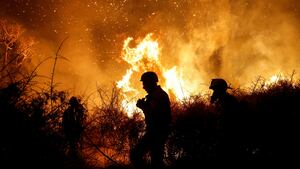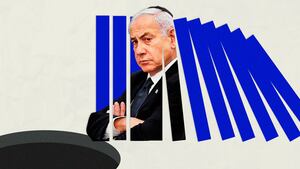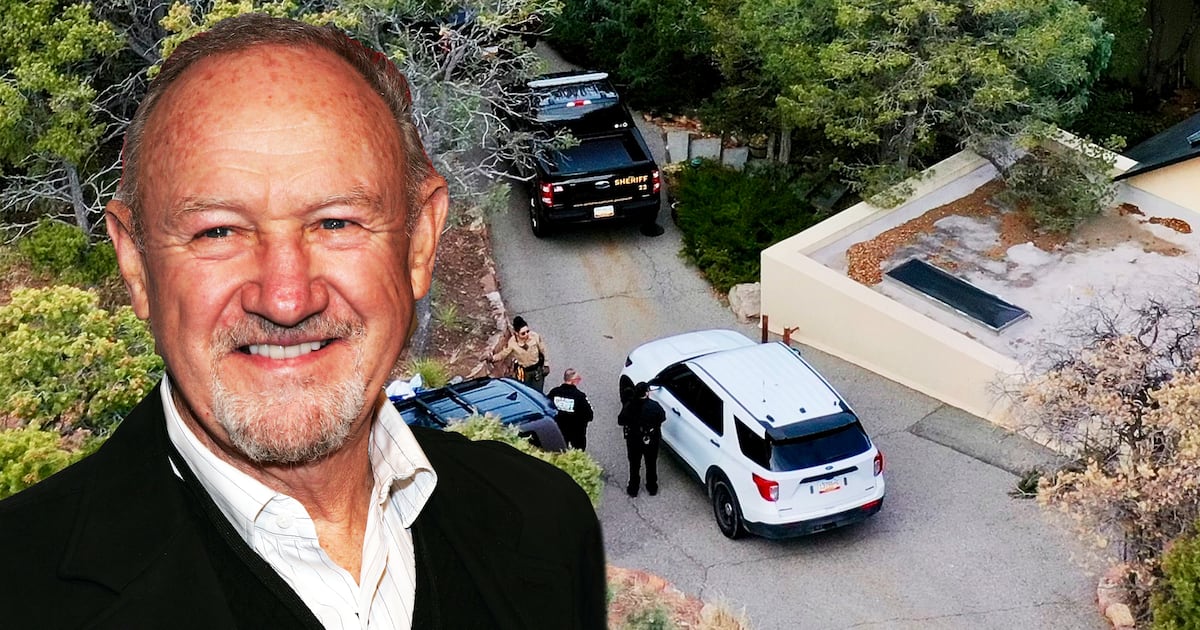Guided missiles and artillery shells from Lebanon pounded targets in Israel Sunday morning as war in the Middle East threatened to spin out of control.
The militant group Hezbollah—which is also a powerful political party in Lebanon—claimed responsibility for the attacks on a disputed territory in the north of Israel hours after President Biden had warned them not to get involved.
Fighting continued in eight pockets in the south of the country on Sunday where the Israeli security forces were struggling to end the worst incursion into the country in 50 years. More than 600 people are dead on both sides with thousands more injured after an invasion launched by fighters from Hamas and Islamic Jihad who blew up border fences and poured into Israel on Saturday on motorbikes, boats and motorized paragliders after launching thousands of rocket and drone attacks.
The invaders gunned down hundreds of Israeli soldiers, civilians and even revellers at a peace festival before snatching dozens of hostages and taking them back to Gaza. Hamas has reportedly claimed that more than 150 hostages were seized but that number is not confirmed. What is known is that whole families, women and children were among those being held on Sunday as terrified relatives begged and cried for their release in heart-wrenching social media posts and television interviews.
Israel’s initial military response was slow—with reduced numbers on shift for a major Jewish holiday—but by Saturday night and into Sunday morning Gaza was being pounded by revenge strikes which have killed more than 300.
Sunday morning brought more attacks on Israel with Hezbollah firing dozens of missiles at Israeli military outposts in Shebaa Farms, a disputed region captured by Israel in the Six-Day War of 1967. Hezbollah’s attack signified their support for the Hamas uprising and raised fears that the militant group, which is backed by Iran, may return to full hostilities against Israel. The Lebanon war between the two forces in 2006 killed more than 1,000 Lebanese people and 165 Israelis.
Biden had specifically called on groups such as Hezbollah to stay out of the conflict during an address on Saturday night. “Let me say this as clearly as I can: This is not a moment for any party hostile to Israel to exploit these attacks,” he said. Hezbollah’s response came early Sunday.
The Israel Defense Force (IDF) responded to the Hezbollah attacks with armed drone strikes that hit targets in another disputed region near the borders of Israel, Lebanon and Syria.
Israeli military insiders told The Daily Beast earlier this year that co-ordination between Hamas, Islamic Jihad and Hezbollah was growing and risked spilling over into a war on Israeli soil. “Israel is on the brink and facing the abyss,” said Assaf Orion, a Brigadier-General in the IDF reserves, in May.
Sources warned that Israel’s treatment of Muslims and their holy sites was sparking increased low-level attacks which were being co-ordinated between the militant groups and other Iranian proxies to an unprecedented extent.
In April, rockets were launched from Lebanon in response to the brutal invasion of Jerusalem’s Al Aqsa Mosque. Israeli security forces stormed into the mosque—which is considered the third most holy site in Islam—and beat worshippers.
Hamas called Saturday’s assault on Israel “Operation Al Aqsa Storm.”
The Israeli authorities and security forces are under huge pressure for allowing hundreds of fighters to march in from Gaza on Saturday largely unopposed. Israeli critics have asked why Benjamin Netanyahu’s hard-right coalition was unaware that Hamas was preparing the most significant co-ordinated attack on Israel for decades.
Lt. Col. Richard Hecht, an Israeli army spokesman, was pressed on how the IDF could have been caught so catastrophically off guard, he repied: “That's a good question.”








